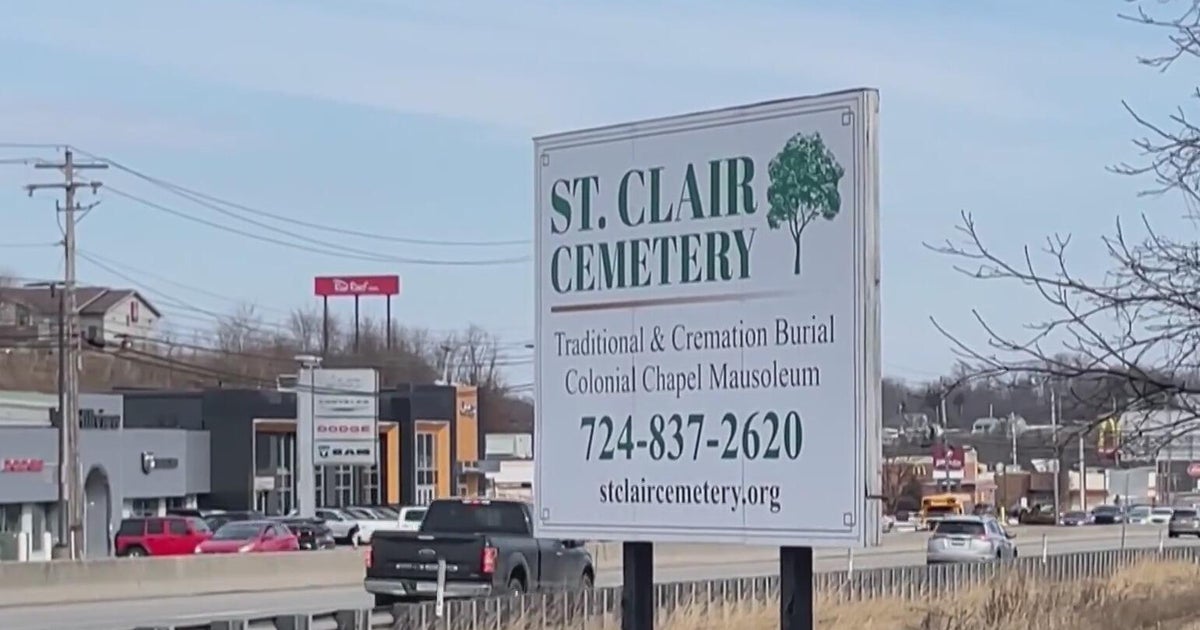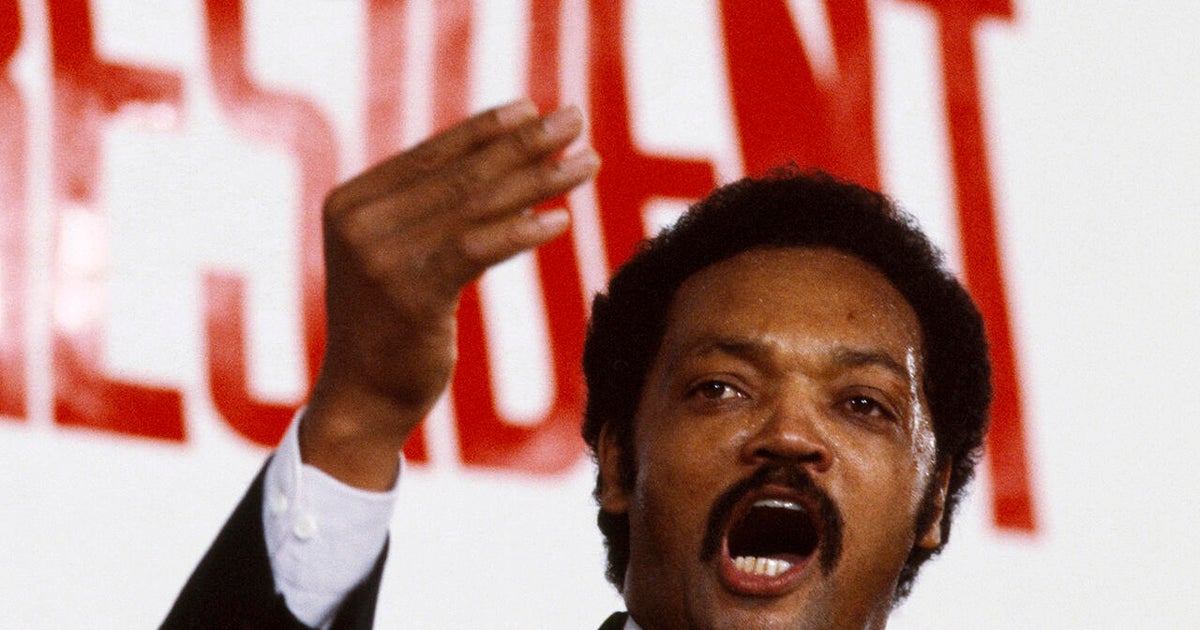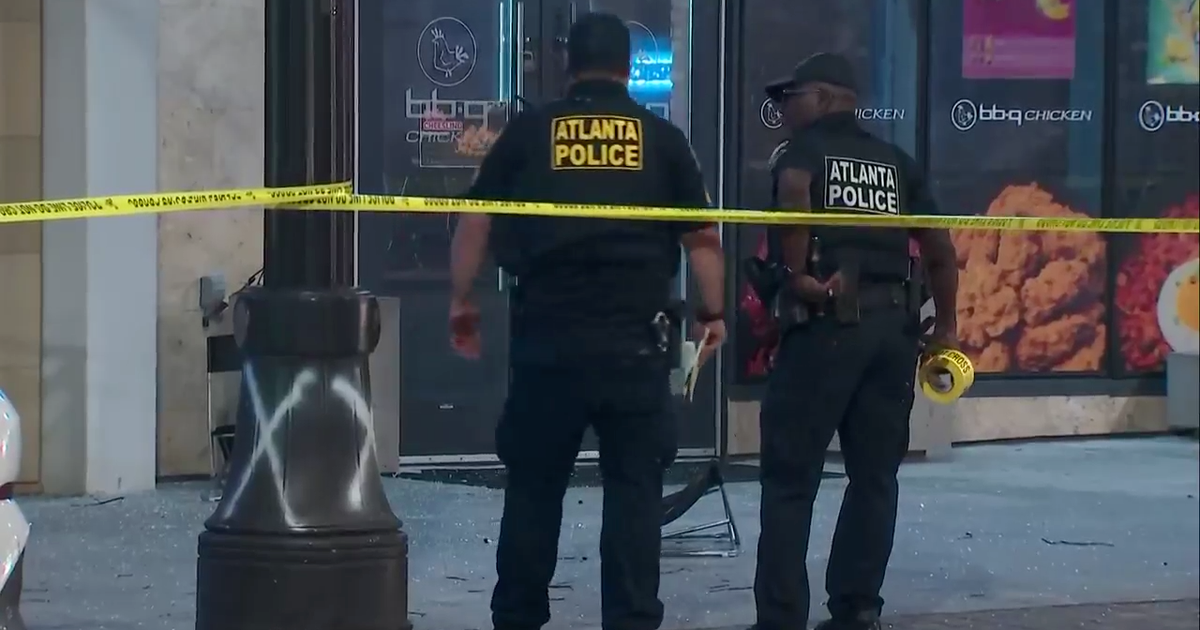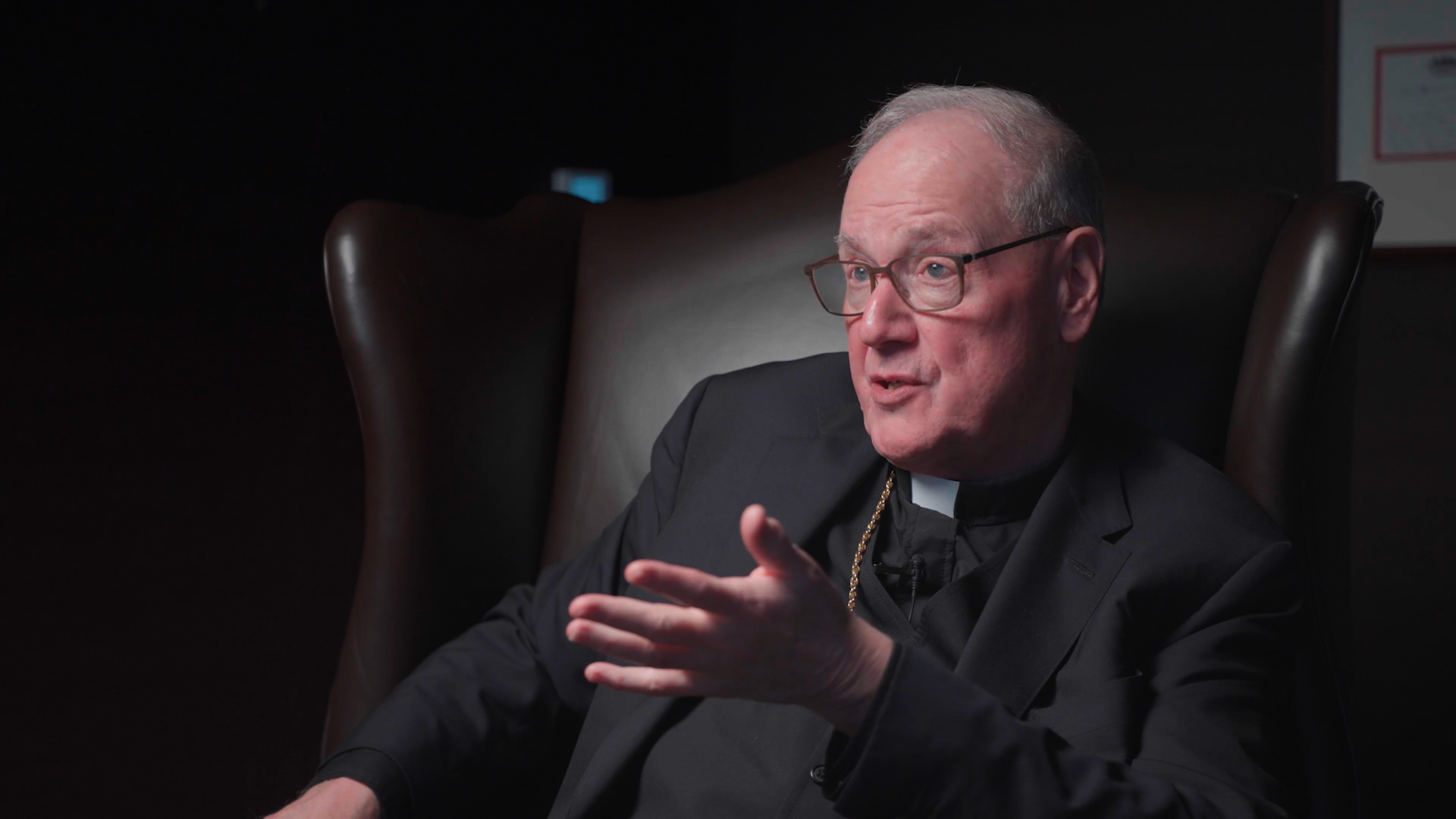Transcript: Senator Tim Scott discusses race on "Face the Nation," June 14, 2020
The following is a transcript of an interview with Senator Tim Scott that aired Sunday, June 14, 2020, on "Face the Nation."
MARGARET BRENNAN: We go now to Mount Pleasant, South Carolina, and Republican Senator Tim Scott. Good morning to you, Senator.
SENATOR TIM SCOTT: Good morning, MARGARET. I hope you're doing well.
MARGARET BRENNAN: It's great to have you back. I want to get into your proposals--
SEN. SCOTT: Thank you.
MARGARET BRENNAN: --but first, ask you about what's happened overnight, where protests are continuing in Atlanta after Rayshard Brooks was shot. The man, the officer who shot him has been fired. The police chief has resigned. Do you agree that this was not an appropriate use of force?
SEN. SCOTT: Well, it seems like the mayor says it was an excessive use of force. That's really the question. The question is when the suspect turned to fire the taser, what should the officer have done? One of the challenges that we have in a split second decisions is the need for more training. That's why the de-escalation aspect of my bill and the House bill is so critically important so that we don't revert back to basic fear plus adrenaline leads us to the genetic code, so to speak. That's a hard balance to- to achieve. So in order for us to provide more opportunities to de-escalate these situations and reduce the use of force, we have to have effective training. That situation is certainly a- a far less clear one than the ones that we saw with George Floyd and several other ones around the country.
MARGARET BRENNAN: Well, this is how it was handled on a local level but you have the responsibility on your shoulders at how to reform things from the federal level down. What do you think--
SEN. SCOTT: Yes.
MARGARET BRENNAN: --needs to be in the bill that you're working on?
SEN. SCOTT: Well, there are three major parts of it. We have to have all the information. Today, only 40 percent of law enforcement off- departments are actually providing information to the DOJ. We need a hundred percent as it relates to serious bodily injury and death. When the officer uses force, we need to have all the information. I've been working on this, MARGARET, for five years. The second thing we have to do is look at training and tactics. If we do that, we can certainly de-escalate the situation and make sure that the officer and the suspect go home. And the third part of it is officer misconduct. If we can drill into officer misconduct, we do it on the local level. House has been talking about doing it on a state level. The president's executive order talks about doing it on a national level.
MARGARET BRENNAN: Officer misconduct. You've been talking about having information sharing when it comes to hiring. But what about the firing? Democrats in particular emphasize that reducing qualified immunity, making it easier to fire bad cops needs to be in legislation. Are you open to that?
SEN. SCOTT: Well, there are two ways that you could deal with that from- from the Republican perspective and the president sent the signal that qualified immunity is off the table. They see that as a poison pill on our side. We could use a decertification of officer, except for the law enforcement unions, say that's a poison pill. So we're going to have to find a path that helps us reduce misconduct within the officers. But at the same time, we know that any poison pill in legislation means we get nothing done. That sends the wrong signal, perhaps the worst signal right now in America. I think we're going to have legislation that can be negotiated that gets us to the place where something becomes law that actually makes a difference. That's got to be our goal.
MARGARET BRENNAN: To be clear, you personally would be open to reducing immunity, but not removing it completely?
SEN. SCOTT: No, I think there's a way for us to deal with it. Decertification would be a path that I would be interested in looking at. That is a path that has got a roadblock because I don't have the votes on the other side to- to make that into law. If we do it right, I think we can reduce the number of times that we're dealing with misconduct on the police departments. If we don't do it right, then we'll have the same situation where there is no law. We can do better than that as a nation, and we will.
MARGARET BRENNAN: We spoke with the attorney general last Sunday on FACE THE NATION and he pointed to a growing number of African-American police chiefs as a sign of progress. And he also said this.
(BEGIN VIDEO CLIP)
ATTORNEY GENERAL BARR: I think there's racism in the United States still but I don't think that the law enforcement system is systemically racist.
(END VIDEO CLIP)
MARGARET BRENNAN: You've talked about your own personal experiences with being targeted, stopped by police, even on Capitol Hill by a police officer who questioned whether you were a senator. Do you agree with the attorney general that there is not systemic racism in law enforcement?
SEN. SCOTT: Well, I- I will say most of us don't really understand the definition of systemic racism. It changes based on the conversations. What I would suggest is that you look at the racial outcomes, is there a nexus to race in some of the outcomes in law enforcement? I think the answer is yes. Can we reduce that so that we're no longer battling the question of the definition of systematic or systemic racism? I think the answer is yes. But there's no question that the outcomes seem to have a racial component. And that's why we're working on getting all the information, then retraining and then eliminating those police officers that have a pattern of misbehavior.
MARGARET BRENNAN: After Charlottesville, you said the president of the United States is not racist, but he is racially insensitive. This past week, he scheduled and then rescheduled by a day his first political rally in three months. It was scheduled for June 19, the celebration of the end of slavery and located in a city, Tulsa, Oklahoma that was the site of one of the worst massacres of black people in this country's history. The symbolism alone here seems damaging. Should he just call it off?
SEN. SCOTT: He's welcome to go wherever he wants to go. I'm thankful that he moved it. Certainly the Tulsa, Oklahoma race riots were the worst in American history by a count. The next year is the 100th anniversary. The president moving the date by a day once he was informed on what Juneteenth was, that was a good decision on his part. I think if we look at the president's speech at West Point, we find really what I think is the path forward on how to talk about these really encouraging issues of racial progress and those issues that are discouraging to the racial divide. If we hear more of that, our nation will turn its head and listen a little closer to what the president says on issues of race. That is the path forward for this nation. It's finding the common ground and those institutions that bring us together. Without that, we may be looking at worse outcomes, not better outcomes, in the next few months.
MARGARET BRENNAN: So just to be clear, you think no one on the Trump campaign or in the Trump White House had any idea of the significance of these two events?
SEN. SCOTT: My understanding is he moved the date once he understood the Juneteenth. I'm not sure that the planners on his inner-circle team thought about June 19th, Tulsa, Oklahoma, and race riots. Unless you're doing a historical check, you probably don't- don't get those dots connected. But I have always said my staff in Washington is an incredibly diverse staff and diversity on our staffs helps us avoid some of the pitfalls. The president, fortunately, has some folks that used to work with me, Ja'Ron and others who, I think, helped to inform and educate the president on why Tulsa, Oklahoma, June 19th was not the best day to do it on it. And to his credit, he moved it. So that's good news.
MARGARET BRENNAN: Senator Scott, thank you for your time this morning.
SEN. SCOTT: Yes, ma'am.
Below is a full transcript of Senator Tim Scott's conversation with Margaret Brennan:
MARGARET BRENNAN: We go now to Mount Pleasant, South Carolina, and Republican Senator Tim Scott. Good morning to you, Senator.
SENATOR TIM SCOTT: Good morning, MARGARET. I hope you're doing well.
MARGARET BRENNAN: It's great to have you back. I want to get into your proposals--
SEN. SCOTT: Thank you.
MARGARET BRENNAN: --but first, ask you about what's happened overnight, where protests are continuing in Atlanta after Rayshard Brooks was shot. The man, the officer who shot him has been fired. The police chief has resigned. Do you agree that this was not an appropriate use of force?
SEN. SCOTT: Well, it seems like the mayor says it was an excessive use of force. That's really the question. The question is when the suspect turned to fire the taser, what should the officer have done? One of the challenges that we have in a split second decisions is the need for more training. That's why the de-escalation aspect of my bill and the House bill is so critically important so that we don't revert back to basic fear plus adrenaline leads us to the genetic code, so to speak. That's a hard balance to- to achieve. So in order for us to provide more opportunities to de-escalate these situations and reduce the use of force, we have to have effective training. That situation is certainly a- a far less clear one than the ones that we saw with George Floyd and several other ones around the country.
MARGARET BRENNAN: Well, this is how it was handled on a local level but you have the responsibility on your shoulders at how to reform things from the federal level down. What do you think--
SEN. SCOTT: Yes.
MARGARET BRENNAN: --needs to be in the bill that you're working on?
SEN. SCOTT: Well, there are three major parts of it. We have to have all the information. Today, only 40 percent of law enforcement off- departments are actually providing information to the DOJ. We need a hundred percent as it relates to serious bodily injury and death. When the officer uses force, we need to have all the information. I've been working on this, MARGARET, for five years. My first bill was in 2015 after the Walter Scott incident where he was shot in the back five times 30 feet from the officer. So this is an important opportunity for us to get all the information. The second thing we have to do is look at training and tactics. If we do that, we can certainly de-escalate the situation and make sure that the officer and the suspect go home. And the third part of it is officer misconduct. If we can drill into officer misconduct, we do it on the local level. House has been talking about doing it on a state level. The president's executive order talks about doing it on a national level. So if we could blend those three together, we might actually save hundreds of lives and improve the relationship between the communities of color and the law enforcement community.
MARGARET BRENNAN: Officer misconduct. You've been talking about having information sharing when it comes to hiring. But what about the firing? Democrats in particular emphasize that reducing qualified immunity, making it easier to fire bad cops needs to be in legislation. Are you open to that?
SEN. SCOTT: Well, there are two ways that you could deal with that from- from the Republican perspective and the president sent the signal that qualified immunity is off the table. They see that as a poison pill on our side. We could use a decertification of officer, except for the law enforcement unions, say that's a poison pill. So we're going to have to find a path that helps us reduce misconduct within the officers. But at the same time, we know that any poison pill in legislation means we get nothing done. That sends the wrong signal, perhaps the worst signal right now in America. I think we're going to have legislation that can be negotiated that gets us to the place where something becomes law that actually makes a difference. That's got to be our goal.
MARGARET BRENNAN: To be clear, you personally would be open to reducing immunity, but not removing it completely?
SEN. SCOTT: No, I think there's a way for us to deal with it. Decertification would be a path that I would be interested in looking at. That is a path that has got a roadblock because I don't have the votes on the other side to- to make that into law. Qualified immunity is a- really, it's like a quagmire pit of opportunities. I think would think we will see a reduction in force, 20 or 30 percent reduction in force, of good officers because it's such a nebulous world there. If we do it right, I think we can reduce the number of times that we're dealing with misconduct on the police departments. If we don't do it right, then we'll have the same situation where there is no law. We can do better than that as a nation, and we will.
MARGARET BRENNAN: We spoke with the attorney general last Sunday on FACE THE NATION and he pointed to a growing number of African-American police chiefs as a sign of progress. And he also said this.
(BEGIN VIDEO CLIP)
ATTORNEY GENERAL BARR: I think there's racism in the United States still but I don't think that the law enforcement system is systemically racist.
(END VIDEO CLIP)
MARGARET BRENNAN: The attorney general said he does not believe that the law enforcement system is systemically racist. You've talked about your own personal experiences with being targeted, stopped by police, even on Capitol Hill by a police officer who questioned whether you were a senator. Do you agree with the attorney general that there is not systemic racism in law enforcement?
SEN. SCOTT: Well, I- I will say most of us don't really understand the definition of systemic racism. It changes based on the conversations. What I would suggest is that you look at the racial outcomes, is there a nexus to race in some of the outcomes in law enforcement? I think the answer is yes. Can we reduce that so that we're no longer battling the question of the definition of systematic or systemic racism? I think the answer is yes. But there's no question that the outcomes seem to have a racial component. And that's why we're working on getting all the information, then retraining and then eliminating those police officers that have a pattern of misbehavior. If we can do those three things, America will be better and our streets will be safer for the suspect, the officer and the community at large.
MARGARET BRENNAN: I want to ask you about coronavirus. The jobless rate among African-Americans--
SEN. SCOTT: Yes, ma'am.
MARGARET BRENNAN: --has now spiked to 17% during this pandemic. Hospitalizations are spiking in your home state of South Carolina, where African-Americans make up 27 percent of the population, but half of the dead due to this virus. Do you believe that in this next round of aid from Congress that it needs to be specifically targeted to help brown and black Americans who are disproportionately being impacted?
SEN. SCOTT: Well, we're doing that in part in the current round of the coronavirus aid packages. What you'll find is that we have allowed for Dr. Francis Collins at the NIH, National Institute of Health, to create a program called RADx Up, which gives us an opportunity to focus more testing and then more treatments within the African-American and minority communities--
MARGARET BRENNAN: Do you think that's enough?
SEN. SCOTT: --for people willing to participate in it. I think that's a first step. Bottom line. And the second thing that we've done already, which is really important, MARGARET, is that if you have no insurance or not enough insurance, we actually, through our CARES Act provide more money for the hospitals that treat anyone who comes in with COVID-19. So there are no obstacles to getting that treatment based on resources. But there is more that we can do. And this is a long term strategy. When you look at the number of African-Americans with two or more underlying health conditions, that actually is what the COVID-19 feeds on. So you think about obesity, high blood pressure, diabetes, too. Those issues seem to be the target of COVID-19. Long term, we've got to reduce those outcomes within minority communities. Short term, we have to provide the resources to deal with it. We're doing it short term. We've got to have a long term view of how to reduce the incidence of those underlying conditions at the COVID-19 and other health conditions seem to feed on.
MARGARET BRENNAN: After Charlottesville, you said the president of the United States is not racist, but he is racially insensitive. This past week, he scheduled and then rescheduled by a day his first political rally in three months. It was scheduled for June 19, the celebration of the end of slavery and located in a city, Tulsa, Oklahoma that was the site of one of the worst massacres of black people in this country's history. The symbolism alone here seems damaging. Should he just call it off?
SEN. SCOTT: I don't- I mean, he- he's welcome to go wherever he wants to go. I'm thankful that he moved it. Certainly the Tulsa, Oklahoma race riots were the worst in American history by a count. The next year is the 100th anniversary. The president moving the date by a day once he was informed on what Juneteenth was, that was a good decision on his part. I think if we look at the president's speech at West Point, we find really what I think is the path forward on how to talk about these really encouraging issues of racial progress and those issues that are discouraging to the racial divide. He talked about the power of our military that rooted out racism through the end of slavery. He talked about the importance of breaking the back of segregation. If we hear more of that, our nation will turn its head and listen a little closer to what the president says on issues of race. That is the path forward for this nation. It's finding the common ground and those institutions that bring us together. Without that, we may be looking at worse outcomes, not better outcomes, in the next few months.
MARGARET BRENNAN: So just to be clear, you think no one on the Trump campaign or in the Trump White House had any idea of the significance of these two events?
SEN. SCOTT: I would say that with- with my understanding is he moved the date once he understood the Juneteenth. I'm not sure that the planners on his inner-circle team thought about June 19th, Tulsa, Oklahoma, and race riots. Unless you're doing a historical check, you probably don't- don't get those dots connected. But I have always said my staff in Washington is an incredibly diverse staff and diversity on our staffs helps us avoid some of the pitfalls. The president, fortunately, has some folks that used to work with me, Ja'Ron and others who, I think, helped to inform and educate the president on why Tulsa, Oklahoma, June 19th was not the best day to do it on it. And to his credit, he moved it. So that's good news.
MARGARET BRENNAN: Senator Scott, thank you for your time this morning.
SEN. SCOTT: Yes, ma'am. Thank you.



